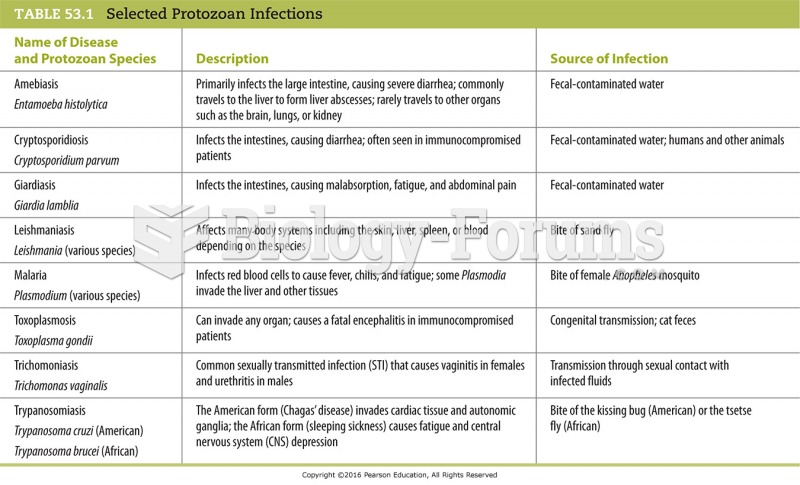|
|
|
On average, someone in the United States has a stroke about every 40 seconds. This is about 795,000 people per year.
Cytomegalovirus affects nearly the same amount of newborns every year as Down syndrome.
In 1885, the Lloyd Manufacturing Company of Albany, New York, promoted and sold "Cocaine Toothache Drops" at 15 cents per bottle! In 1914, the Harrison Narcotic Act brought the sale and distribution of this drug under federal control.
Bacteria have flourished on the earth for over three billion years. They were the first life forms on the planet.
Drugs are in development that may cure asthma and hay fever once and for all. They target leukotrienes, which are known to cause tightening of the air passages in the lungs and increase mucus productions in nasal passages.







